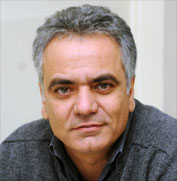Socar Hits Desfa Snag
Azerbaijan's state energy company Socar is running into problems concerning its stake in Greece's natural gas grid operator, Desfa, with the Greek parliament expected to vote imminently for a crucial change concerning the value of Desfa.
As a result, Socar is expected to send a delegation of senior officials to hold talks in Athens this week. They will address two main problems. The first concerns the size of Socar's stake in Desfa. The second – which is both far more important and far more complex – concerns the methodology of accounting within Desfa.
The first point is relatively straightforward. When Socar won the tender to acquire a 66% stake in Desfa for €400mn in June 2013, purchasing a 35% stake from Hellenic Petroleum and a 31% stake from Greek government, it had strong EU backing, not least because the leading alternative bidder was a Russian company, Sintez. At the time, the EU was also worried that Gazprom would seek to purchase Desfa's parent company, Depa, the Greek natural gas supply company. In the event, however, nobody bid for Depa and only Socar bid for Desfa.
But in late 2013, Socar was a party to the final investment decisions which secured the development of the cluster of projects known as the Southern Gas Corridor, which included development of the giant Shah Deniz Phase Two project and the associated Trans-Adriatic Pipeline. This potentially put Socar in conflict with EU regulations since Socar would be a shareholder in TAP – it subsequently took a 20% stake in the pipeline – and because the line would be used to carry SD2 gas that was partially owned by Socar to market in Greece, Albania and Italy – and probably Bulgaria as well.
Socar therefore agreed to reduce its stake in Desfa to 49%. A senior Socar official, contacted by NGE in Baku recently, said that Italy's Snam-Rete has agreed to take up part of this 17% and that discussions are continuing with other prospective buyers. Socar's president Rovnag Abdullayev has previously mentioned Spain's Enagas as a possible buyer. This issue may take time to solve but, the official said, the company is confident that it will be resolved satisfactorily.
It is the second issue that is truly troublesome. Greek energy minister Panos Skourletis recently submitted an amendment current regulations intended to reduce Desfa's regulatory asset base, apparently from around the €1bn figure assumed by Socar to around €800mn. This would be accomplished by taking out some €200mn in government funds that Desfa had included in the regulated asset base in the initial three-year period. The ministry is asserting that this €200mn should not have been included in the original methodology.
However, a €200mn reduction would radically change the basis on which Socar would be able to secure a return on its initial investment. According to Greek regulations, Desfa is guaranteed to secure an 11.5% return upon its regulatory asset base. And if it does not get the money in the first three years, the guarantee is that it will be able to make up the difference in the second three-year period. This would be achieved by increasing tariffs.

Minister Panos Skourletis (image credit: ypeka.gr)
The problem is that if the value of the regulated asset base is reduced in the manner proposed by Skourletis, tariffs would have to be increased by around 80% in order to ensure Socar received a full 11.5% return over both the initial three-year period from 2013-16 and the following three-year period from 2016-19.
And such an increase would be intolerable for Greece's gas consumers at a time of continued severe economic constraint. Moreover, reducing the value of the regulated asset base could reduce the prospect that Snam-Rete and other companies might be willing to invest in Desfa.
From Socar's perspective, there are two main problems in this dispute. The first is one of perception, that there has been a lack of government communication with Socar about the issue. What's happening, one senior Socar executive commented privately, is "government by press release."
The more substantive problem is how to square the dilemma that Socar should receive its promised internal rate of return without Greek natural gas customers having to pay far more than they can afford.
One possible solution is that the shortfall in payments from the first three-year period may be amortised. But other alternatives are also being explored. At this stage, no-one is sure just how the situation will develop.
John Roberts


